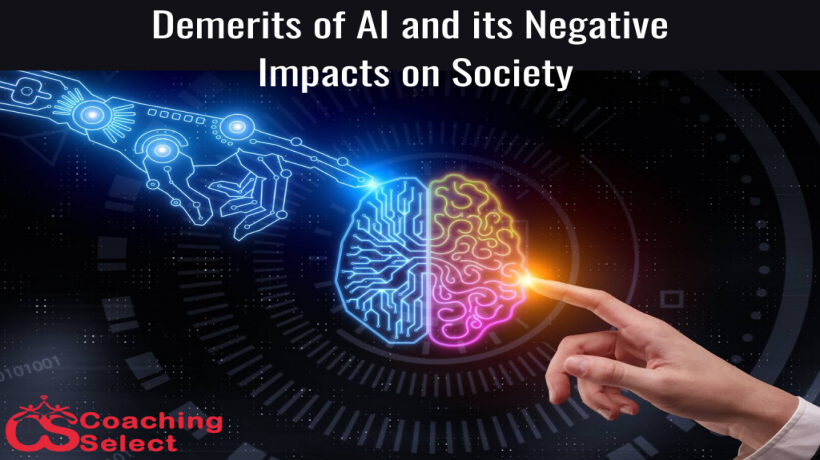Unveiling the Dark side of AI and its Negative impact on society
This blog provides information about the drawbacks and demerits of Artificial Intelligence.
November 26, 2023
Career Expert & Blogger

There is no doubt that artificial intelligence (AI) has revolutionised the way we work, live, and engage with technology. The advantages of AI are numerous, ranging from improving productivity to completely changing sectors. Even if we are in awe of its powers, it is important to recognize and comprehend AI's drawbacks and any possibly dangerous outcomes. We will discuss about the negative aspects of AI in this blog, including its shortcomings and possible threats to society.
Job Displacement
The possibility of employment displacement due to AI is one of the main worries. Widespread unemployment is a real risk as AI systems advance and grow more adept at handling jobs that have historically been completed by humans. Millions of jobs might be lost as a result of automation in sectors including manufacturing, customer service, and transportation, escalating socioeconomic inequality and posing new difficulties for the labour force.
Bias and Discrimination
The objectivity of AI systems is dependent on the quality of the training data. The AI model will inherit and maintain any biases present in the training data. Discriminatory results may result from this, especially in the recruiting, law enforcement, and financial sectors. Systemic injustices might result from biased algorithms' amplification of preexisting social inequities and unjust disadvantage of some groups.
Lack of Accountability
Accountability is severely hampered by the opacity of certain AI systems. Deep learning models—especially neural networks—function as intricate black boxes, making it challenging to comprehend how the system makes decisions. It can be difficult to place blame and fix problems when AI systems make mistakes or behave badly, which raises questions about accountability and transparency.
Security Risks
The likelihood of malicious usage and security breaches rises with the increased integration of AI into vital infrastructure and networks. The integrity of information systems, personal privacy, and national security are seriously threatened by deepfakes, cyberattacks using artificial intelligence, and the manipulation of AI algorithms for illicit ends.
Ethical Dilemmas
Deeply moral concerns are brought up by the creation and application of AI. A few examples of issues include the application of AI in autonomous weaponry, privacy violation via surveillance technology, and the possibility of AI manipulating public opinion through social media algorithms. It is a difficult task that calls for much thought to strike a balance between ethical concerns and technical advancement.
Loss of Human Connection
Artificial intelligence (AI) has the ability to improve productivity and streamline procedures, but it also has the ability to weaken human relationships. A lack of interpersonal skills and a human touch might result from our growing reliance on AI-driven communication tools and virtual assistants, which could have an adverse effect on our mental and social well-being.
Conclusion
As we enter the era of artificial intelligence, it is critical to address the drawbacks and potentially dangerous effects of this revolutionary technology. A multifaceted strategy combining cooperation between engineers, legislators, ethicists, and society at large is needed to address these issues. We may work to build a future where the advantages of technology are wisely utilized, guaranteeing a peaceful coexistence between humans and artificial intelligence, by proactively tackling the negative aspects of AI.

